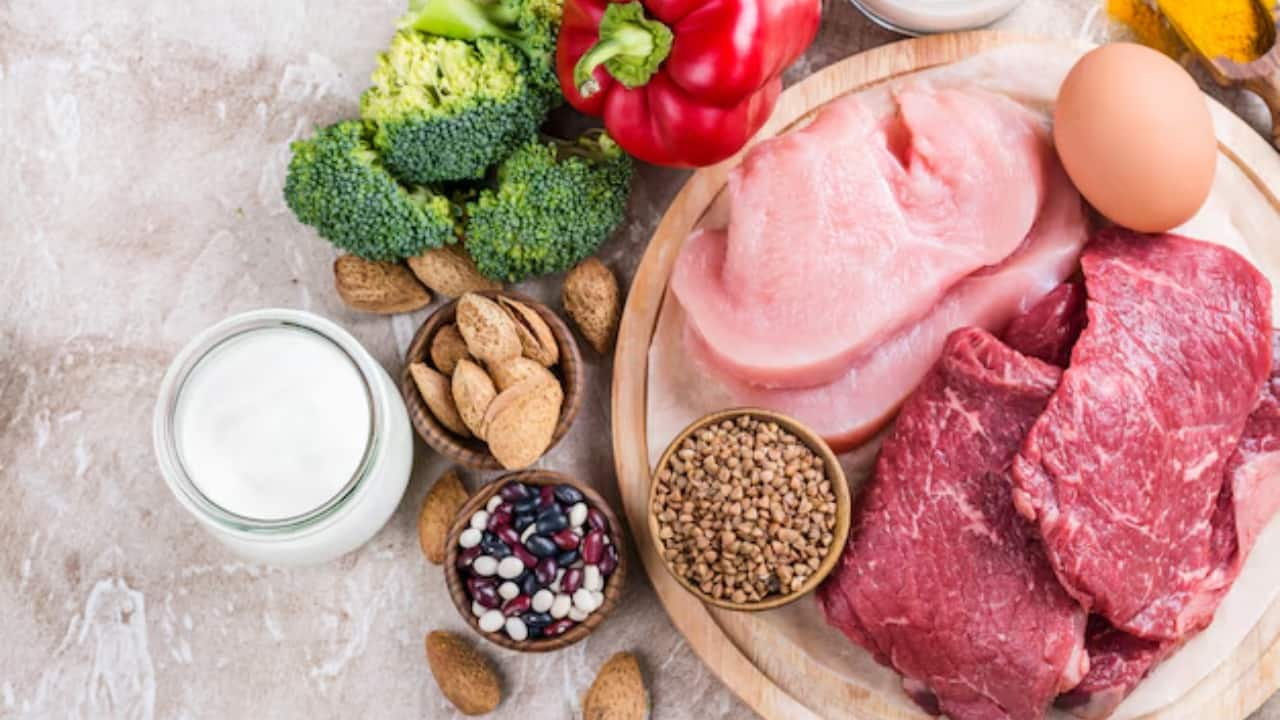



As we celebrate World Protein Day, it’s important to understand the best practices for protein intake. To help navigate through this, we spoke with experts in the field of nutrition and healthcare. Together, they shed light on everything you need to know about protein consumptions—whether it's how much protein is good enough to what happens when you have excessive protein.
How much protein should you consume?
Protein requirements differ based on a variety of factors including age, gender, physical activity levels, and specific health goals.
Riccha Parmmar, nutritionist and founder of Yavinutribalance, emphasises that sedentary individuals require approximately 0.8 grams of protein per kg of body weight. "For those who are more active, including athletes or individuals focusing on muscle gain or weight loss, the intake increases to 1.2–2.2 grams per kg of body weight," she says
Dr Simon Grant, physician and trustee at Ruby Hall Clinic, Pune, also agrees, advising 1.0–1.5 grams per kg of body weight for pregnant or lactating women, and higher intake for athletes, up to 2.2 grams per kg.
What happens if you overdo protein consumption?
 Excessive consumption can lead to side-effects. (Image: Freepik)
Excessive consumption can lead to side-effects. (Image: Freepik)
While protein is crucial for health, excess consumption can lead to some unwanted effects. Parmmar points out that digestive issues such as bloating, constipation, and diarrhea can arise when protein intake is too high.
"Additionally, excess protein can strain the kidneys, especially for individuals with pre-existing kidney conditions, and lead to dehydration as protein metabolism requires extra water. Moreover, an overconsumption of protein may cause nutritional imbalances by limiting the intake of other important nutrients like fats and carbohydrates, which are equally necessary for a balanced diet," Parmmar adds.
Dr Saswata Chatterjee, consultant, Gastro Science at CMRI Hospital agrees that excess protein, especially for those not engaging in physical activity, will largely be excreted out of the body, but in more active individuals or those with muscle breakdown, excess protein might aid in preventing muscle loss and promoting muscle growth.
Dr Grant concurs, stressing that excess protein, when not utilised, is converted into fat and can result in digestive discomfort and a reduced intake of essential nutrients.
Also Read | World Protein Day myths: Is protein only for athletes? Does it lead to weight gain?
When should you have protein?
There is often debate about whether to consume protein before or after a workout. Experts agree that the timing of protein intake is crucial for optimising muscle repair and growth.
According to Parmmar, having protein pre-workout helps in maintaining energy levels and preventing muscle breakdown, while post-workout protein, particularly whey protein, enhances recovery.
Dr Chatterjee highlights the concept of the anabolic window—"a period of up to two hours post-exercise when muscle growth is maximised by protein intake".
Dr Grant also suggests combining protein with carbohydrates pre-workout to fuel the body and improve muscle performance, while post-workout protein is crucial for muscle recovery, ideally consumed within 30-60 minutes after exercise.
Also Read | World Protein Day 2025: Best expert-approved tips to fix protein deficiency
The key is to consume the right amount of protein based on activity levels, health goals, and overall dietary balance to ensure maximum health benefits without risking negative side effects.
Disclaimer: This article, including health and fitness advice, only provides generic information. Don’t treat it as a substitute for qualified medical opinion. Always consult a specialist for specific health diagnosis.
Discover the latest Business News, Sensex, and Nifty updates. Obtain Personal Finance insights, tax queries, and expert opinions on Moneycontrol or download the Moneycontrol App to stay updated!
Find the best of Al News in one place, specially curated for you every weekend.
Stay on top of the latest tech trends and biggest startup news.